Rise Against in-depth on new album, The Black Market
Zach and Tim on riffs and recording secrets
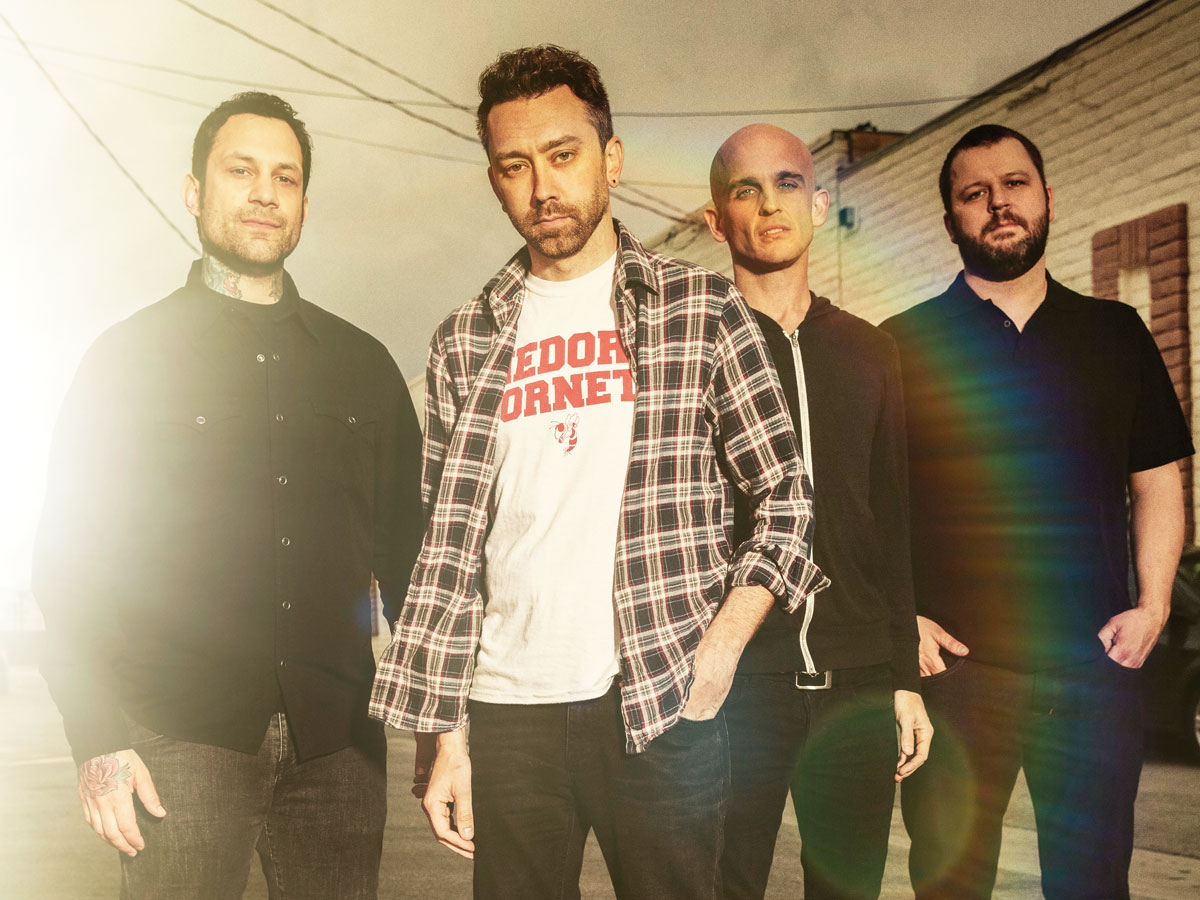
Introduction
Chicago hardcore-types Rise Against have achieved what was once thought impossible for a political US punk band: mainstream success on their own terms.
Their recently-released seventh album, The Black Market, hit the top three on the Billboard charts (their third record to do so) and escalated them to a strata of punk band previously only occupied by more palatable types such as Green Day and The Offspring.
Led by frontman Tim McIlrath, who we’d describe as a ‘meat and potatoes’ guitarist, were the whole band not vegetarian, and bolstered (since 2008) by ex-GWAR/Hagfish man Zach Blair - a man “on a mission to prove there are great guitarists in punk” - this band have made a mockery of the idea that you have to compromise to succeed.
We spoke to Tim and Zach about their guitar advances on the record and keeping that famed moral compass on track...

Different choices
What did you want to achieve on this album as guitarists and songwriters?
“As a guitar player - and a nerdy guitar player - [this record] scratched many itches for me”
Tim: “We wanted to come into this record and make some different choices. It needed to not just be a record, but to fit into a collection of records. We’re still Rise Against, it’s always going to have that DNA, but I feel like I can hear those different tones and sounds and I think Rise Against fans will notice it, although the casual listener will probably just think, ‘There’s another Rise Against song!’”
Zach: “You want to stay true to what makes the band the band, but as an artist and as a guitar player, you’re always looking to reach out. It sounds generic, but it’s so true. I think we called in some old influences on this one, but there’s also true-to-life lead guitar solos. That to me as a guitar player - and a nerdy guitar player - scratched many itches for me.”
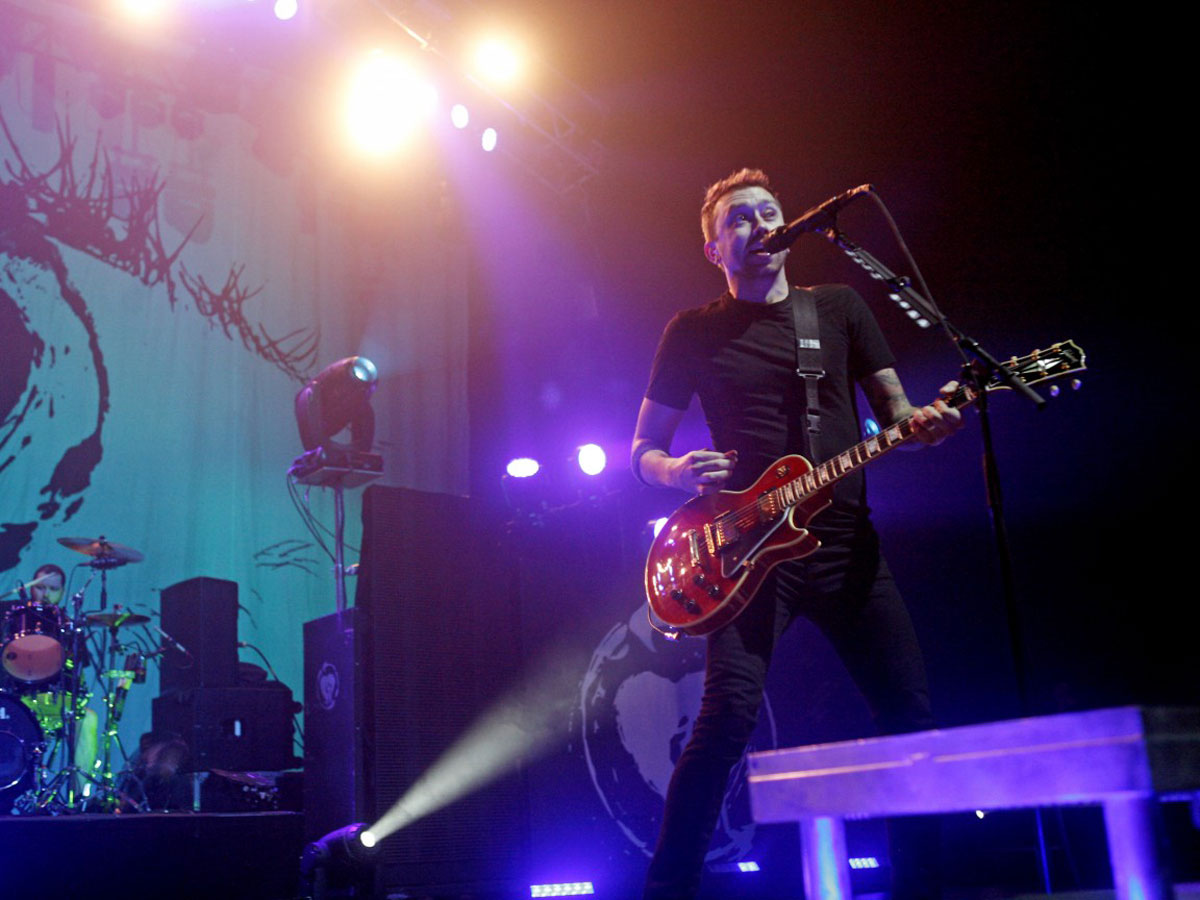
Drafting a sound
How complete were the songs when you entered the studio?
“That’s been a concerted effort, to say, why don’t we not do the same thing here?”
Tim: “The songs were not very complete, probably the least complete they’ve ever been. It was kind of a draft. Everybody would get an idea and throw it around and then when we really got into the tracking of the guitars, that’s when we really started thinking, ‘Okay, here’s a foundation, now what can we do with this that we haven’t done before?’”
Zach: “That’s been a concerted effort, to say, why don’t we not do the same thing here? Since I’ve been in this band, which is eight years now, we’ve grown to meet each other’s styles. Now we’re almost never playing the same thing at the same time, even if we’re just chugging a barre chord. There’s no point having two guitars playing the same thing.”
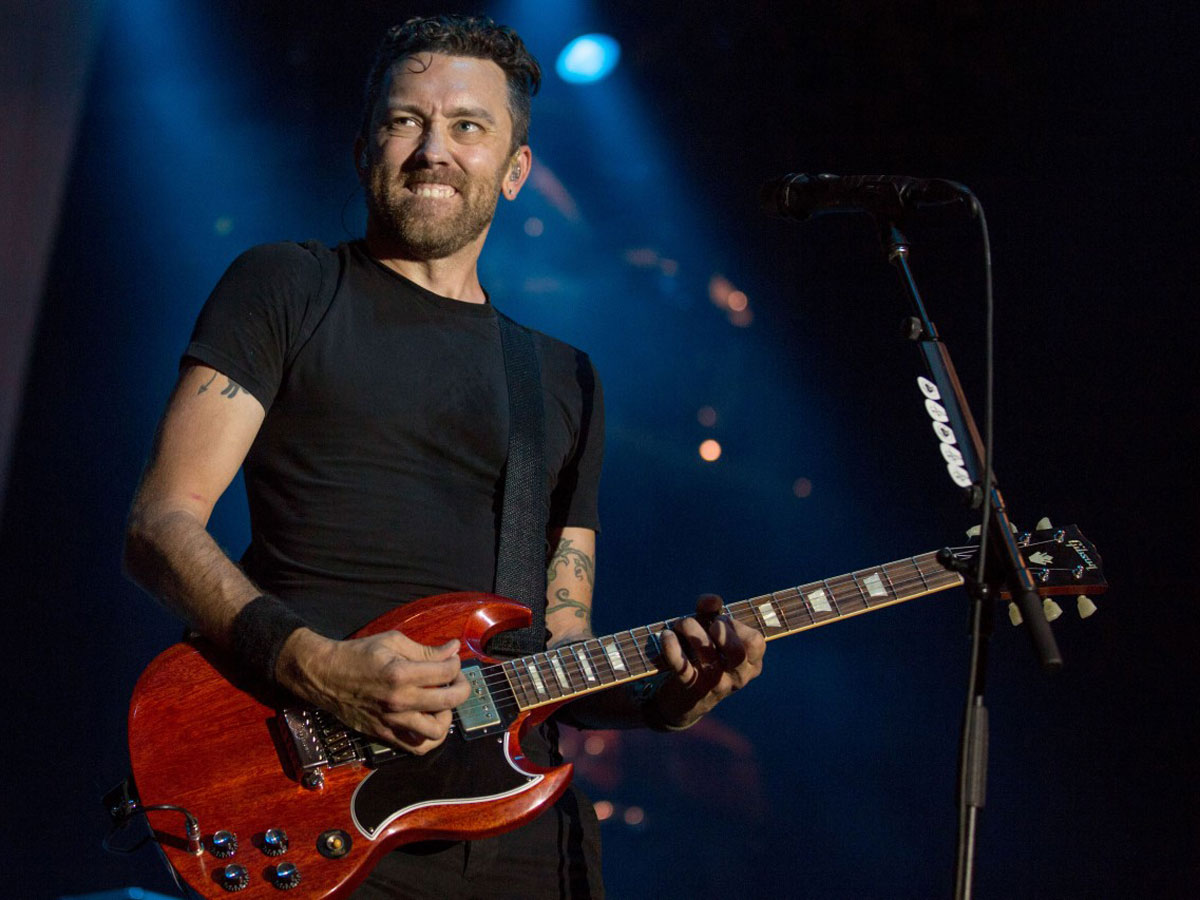
New album, same bullshit detector
Is there an element of trying to avoid being too self-conscious when you’re making those decisions? Of over-analysing?
“At some point you have to just go with your gut and then just stop”
Tim: “You can really overthink it, but that’s one of the challenges of being in the studio. A teacher once told me that when teaching kids how to paint and draw, part of the challenge is knowing when to take the painting away from them. If you leave it, they’ll just keep painting until they ruin it. The studio is like that. You have everything, so at some point you have to just go with your gut and then just stop.
“What’s nice, having the four of us, and also Bill Stevenson and Jason Livermore - who produce our records and are part of the family - is that we all have the same bullshit detector. You know from the look in everybody’s eye whether it was cool or not, you know?”
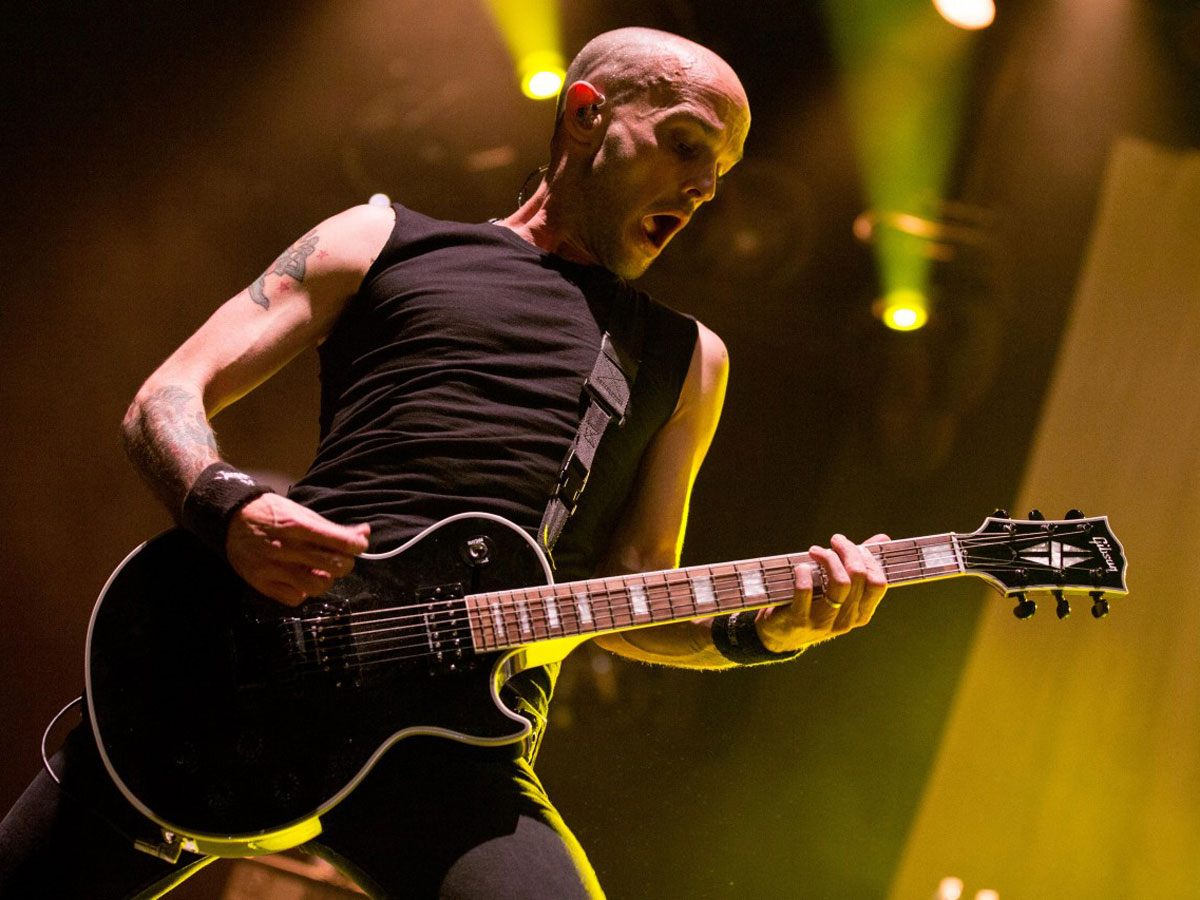
The song needs a solo
Zero Visibility seems one of the more major steps forward. Where did it come from?
“There’s not many chances where you just get to go for it and do it with taste”
Zach: “That one is similar to steps that we’ve been taking for the last few records, like Midnight Hands and things like that: more riffs. I think it was one where the song definitely needed a solo. There’s not many chances where you just get to go for it and do it with taste. I remember being in the studio, trying to think of the perfect way to do that and I came up with something I liked, but time will tell. It’ll be fun to play live, that’s for sure.”
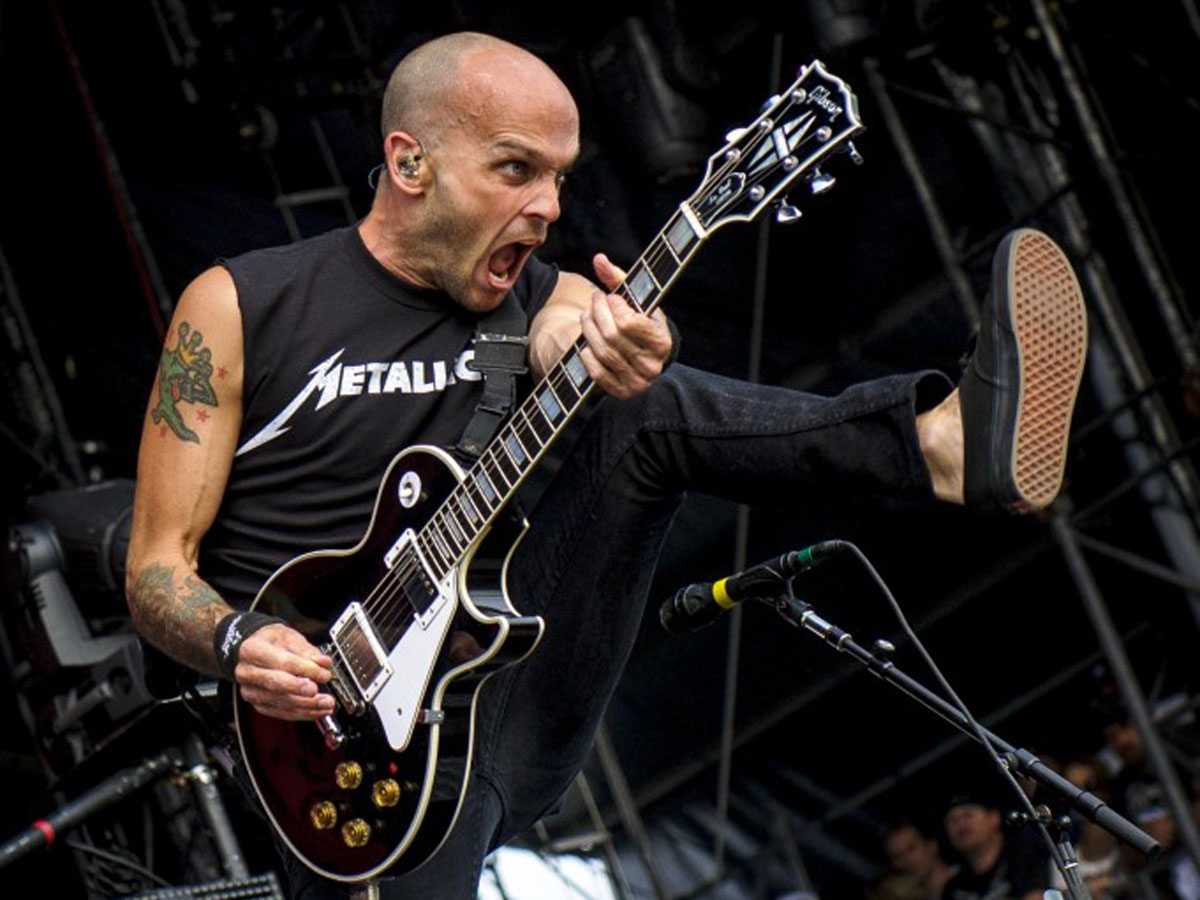
Showing off
Zach, you always resist the temptation to showboat as a lead guitarist. What’s the secret to treading that fine line?
“It’s great if you can play your ass off, but it’s important that you do it for the greater good”
Zach: “For me, it’s about remembering that there are three other guys in this band. I think that it’s great you can play a barre chord and write the most amazing song and I think it’s great if you can play your ass off, but it’s important that you do it in a context that is for the greater good.
“This record is the first time there’s really been a chance for me to kind of show off, just a little bit. Live, we do jams in the middle of songs, like Saviour, and it’s always fun to go, ‘Hey, surprise!’ But I’m a team-player and I’m in a band that has good songs that have a message - and that message is so much more important than me going, ‘Hey, look at what I can do!’”
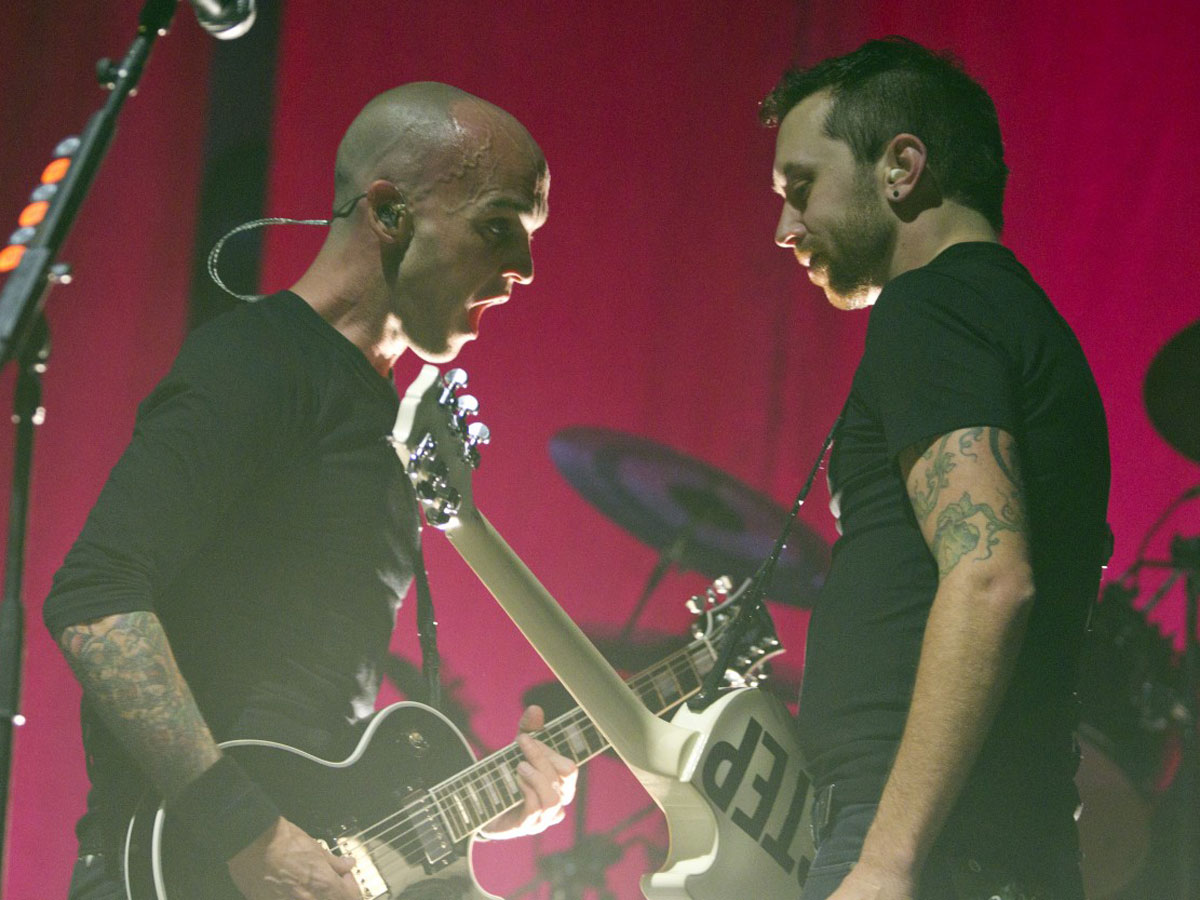
The essential Evertune
Were there any essential discoveries you made on the gear side?
“We used the Evertune bridge on the whole record and it’s just voodoo magic!”
Zach: “We used the Evertune bridge on the whole record and it’s just voodoo magic! You can set this thing so you can pull the E-string all the way to the high E-string and it doesn’t change pitch. For us - guys who play really hard - it’s almost impossible to record a song, or a verse or anything without being a bit sharp, so this allows you to play with that intensity and not be pulling your guitar out of tune.”
Tim: “The less obvious benefit was that we were more willing to try stuff because it was so much easier to get a take. It used to be like, ‘I have 10 ideas.’ ‘Well, let’s just do two of them, because otherwise we’re gonna be on this all fucking day.’ But now it’s like, ‘Let’s do all 10!’”

Go-to Gibsons
What guitars were you using for the album this time round?
“The studio has some Les Pauls that we love using”
Tim: “I have this Gibson ES-137 hollowbody guitar that I’ve used on records before, but it didn’t stay in tune, so I had an Evertune bridge fitted and now we use it a lot. Then the studio has some Les Pauls that we love using, and a Fender Jagstang that we ended up using for a lot of our clean tones.”
Zach: “I ended up going to an SG everyday. I had this regular black Standard SG that I actually bought for [Rise Against’s go-to recording studio] The Blasting Room a few years back. I used that a lot and a black Classic Standard that they had there.”
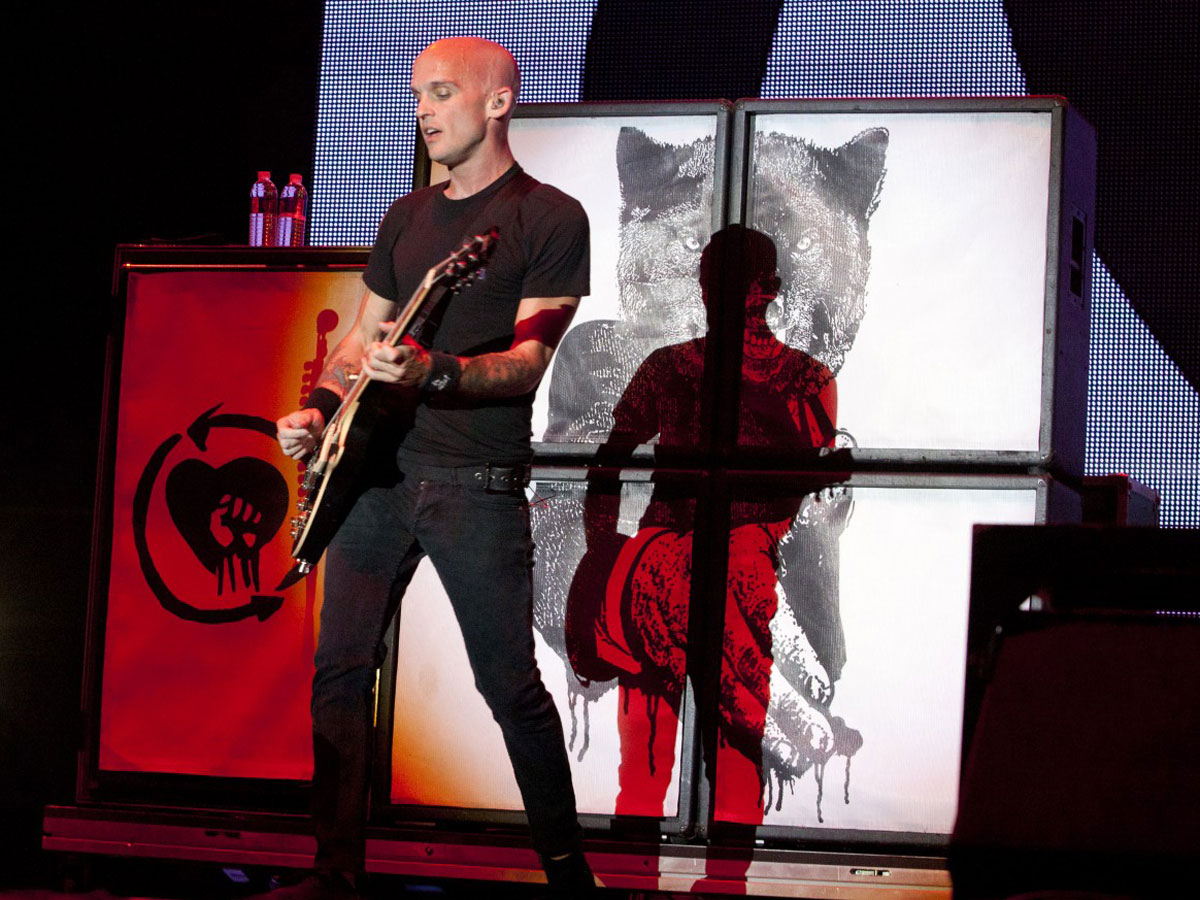
A trip to Toneville
Were there any changes to your usual Marshall amps?
“We would go back over songs that we’d done with the Marshalls and double it with a Toneville”
Tim: “It was mostly Marshalls. They sent us some of those JVM4s, which were cool to use and sounded good. Then there was this boutique company called Toneville and they’re out of Colorado [where The Blasting Room studio is based], so the guy came by and dropped off some amplifiers. I’m really a Gibson/Marshall guy - if AC/DC used it, then it’s good enough for me - but the Tonevilles sounded really good.”
Zach: “Our other producer, Jason Livermore, loved them. We would go back over songs that we’d done with the Marshalls and double it with the Toneville. Also there was a Bogner Uberschall and a Mesa/Boogie Triple Rec, but that was about it.”
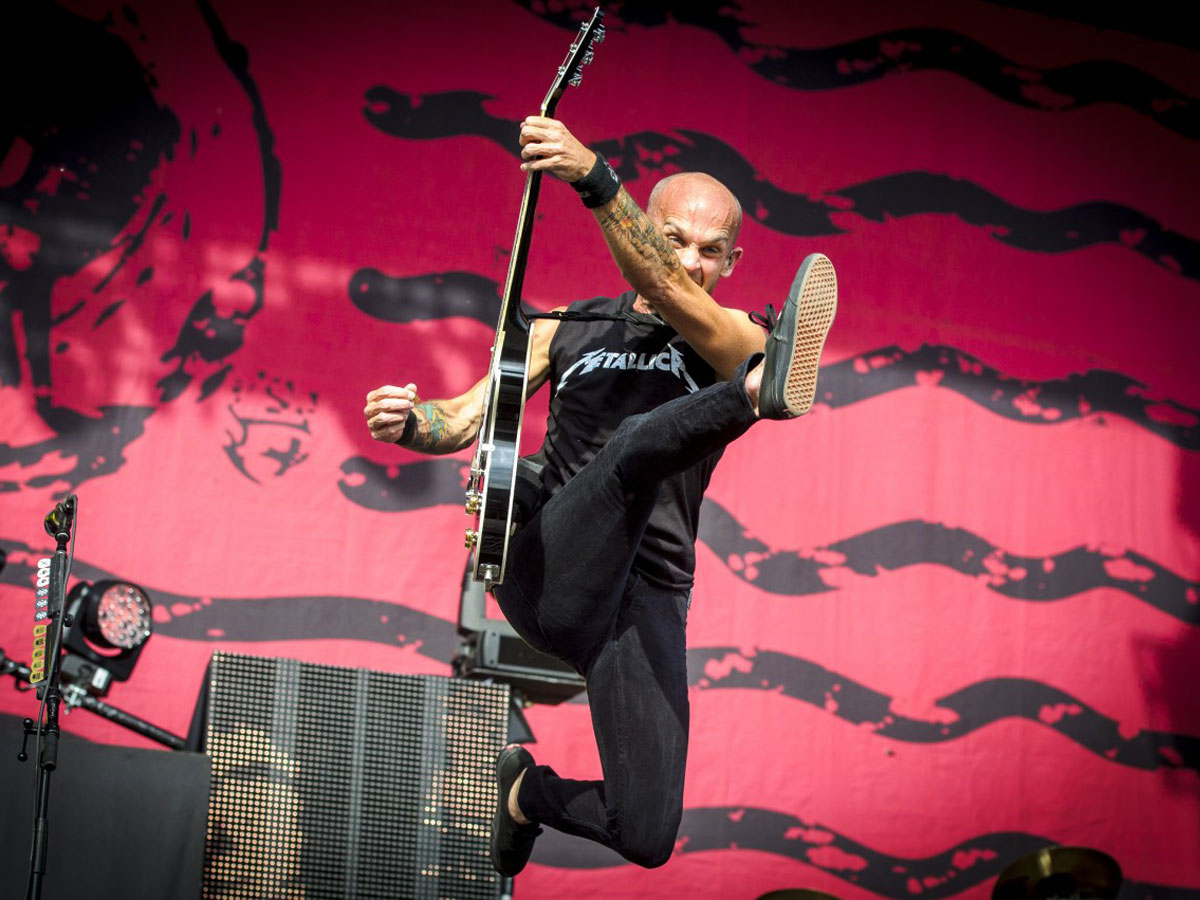
Having a blast
You recorded with Bill Stevenson and Jason Livermore at The Blasting Room again. Is that duo and the studio part of the band now?
“People forget that [producer] Bill Stevenson kind of started The Descendents and also wrote most of their songs”
Zach: “It really is. I’ve been recording there for 20 years now. I was in a band called Hagfish when I was a kid and we were the first band to ever record there. And my brother and I played in a band called Only Crime and Bill played drums for that. So everything kind of revolves around him [and that studio].”
Tim: “We’ve done five out of seven records there, and if I could go back, I would have done seven out of seven with them.
“Bill obviously was the drummer of Black Flag and The Descendents, but I think that people often forget that he kind of started The Descendents and also wrote most of their songs, as well, so he’s a songwriter, a singer, a guitar player, a composer and an amazing producer.”

Black sheep of the airwaves
Why do you think the relationship has been so successful?
“We play festivals with all of these bands, but I don’t feel like I belong there”
Zach: “Bill’s the conscience. You need somebody that cares about the band and feels like a member of it and he absolutely is, I don’t know where we’d be without him.”
Tim: “We needed somebody that understood that even though the band has songs on the radio, we still have far more in common with the punk world. We’re the black sheep on the airwaves. We play festivals with all of these bands, but I don’t feel like I belong there.
“Bill and Jason are our barometers and our anchors, but they’re not just curmudgeonly old punk guys, they’re always pushing for something better. They want our songs to be the best thing on the radio that day. It’s like, ‘how do we still stay who we are, but also compete with these bands that are playing at our level?’”
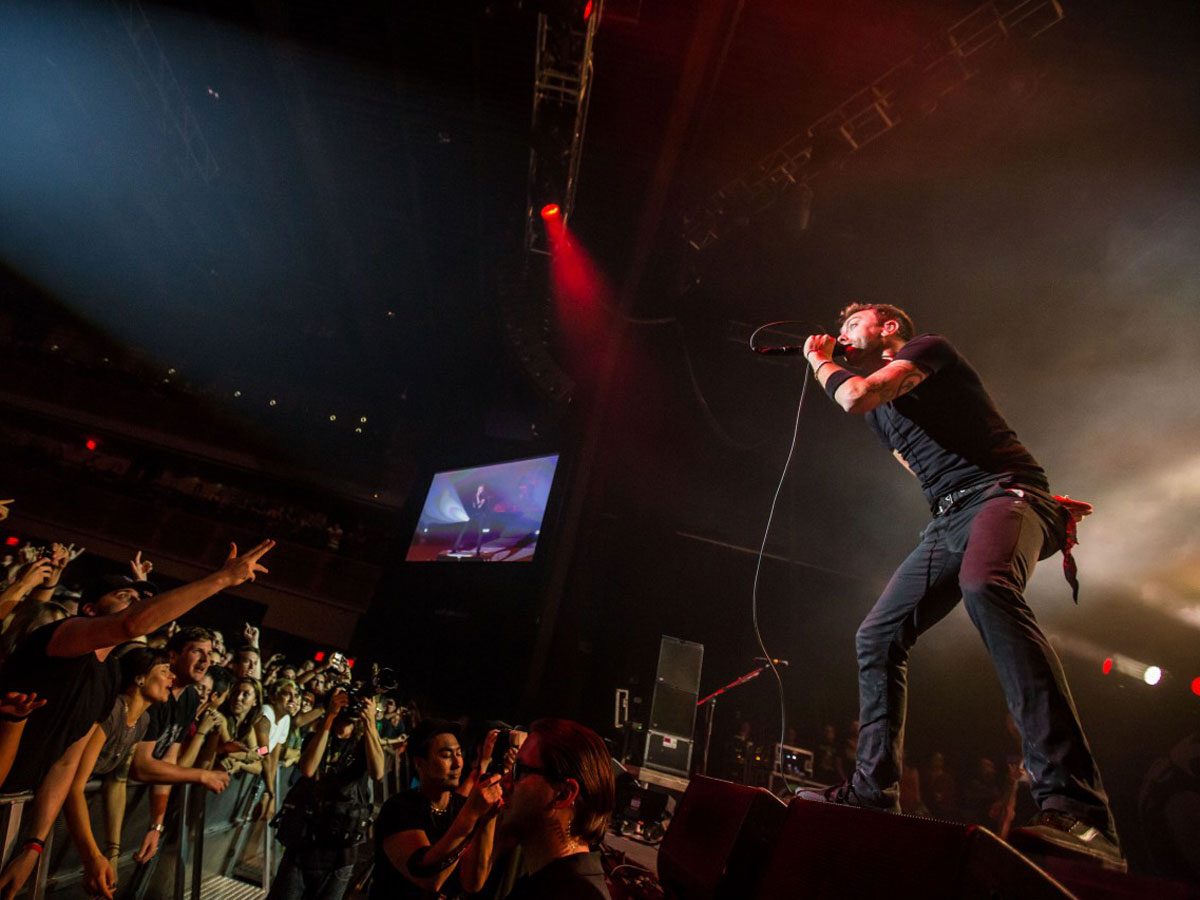
Hang on to yourself
Coming this far, in this industry, how do you hold on to those ideals and ethics?
“You can’t write a hit song that replaces the character or integrity of your band”
Tim: “We say no to a lot of things, basically! We’ve turned down a lot of big opportunities where we even questioned, ‘Ah shit, should we have done that?’ But you can’t write a hit song that replaces the character or integrity of your band. Once you give that up, you don’t get it back.
“You can’t write a popular enough record, or play a big enough show to get it back. There’s a currency in that and who you are and I feel like in the long-run, we’ve created a trust with our audience. They know who we are and we don’t jerk you around.”
Zach: “I just don’t think we’ve even considered another way. There’s never been that outside influence - apart from Bill Stevenson, who’s family - in the room with us telling us what to do. Do I think it would be easier for a band without some sort of message? Yeah. Probably. But I wouldn’t want to be in that band!”
Matt is a freelance journalist who has spent the last decade interviewing musicians for the likes of Total Guitar, Guitarist, Guitar World, MusicRadar, NME.com, DJ Mag and Electronic Sound. In 2020, he launched CreativeMoney.co.uk, which aims to share the ideas that make creative lifestyles more sustainable. He plays guitar, but should not be allowed near your delay pedals.


